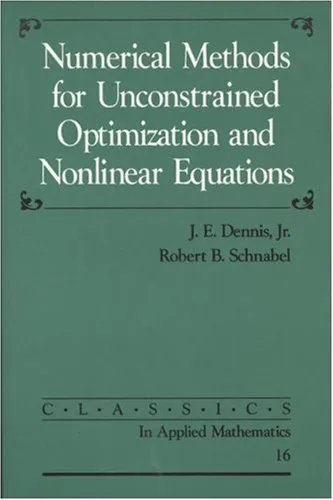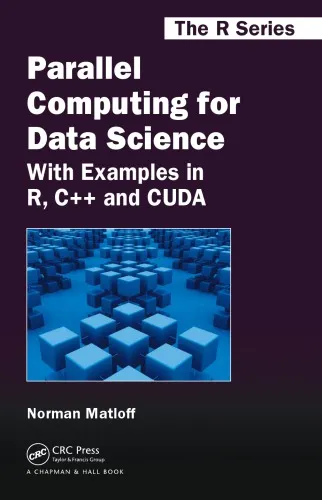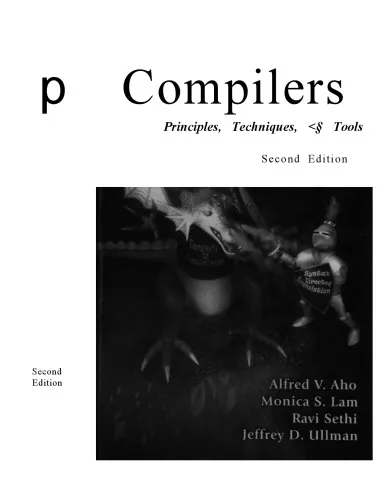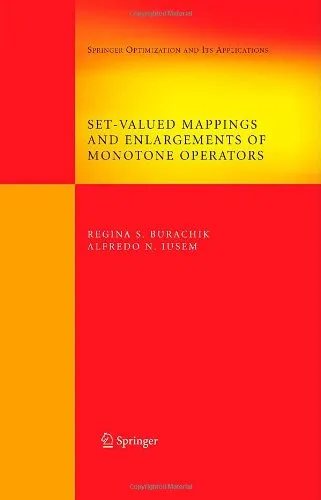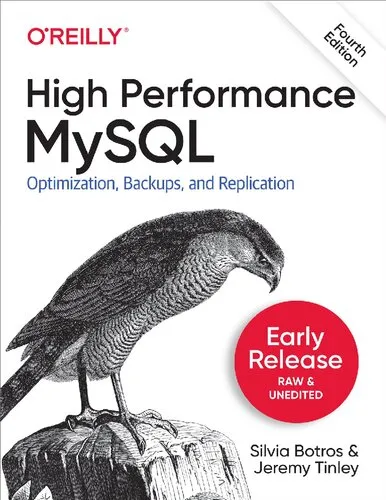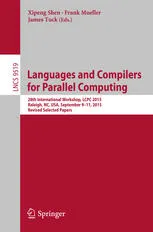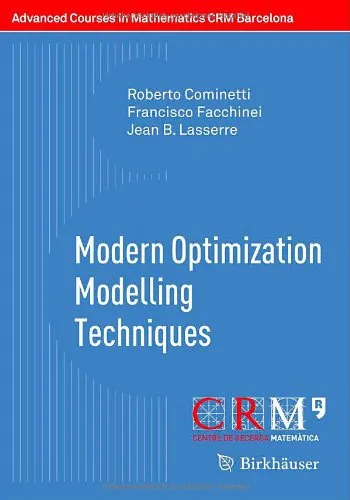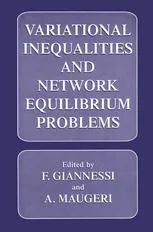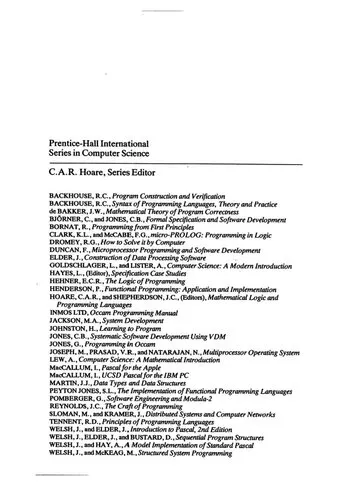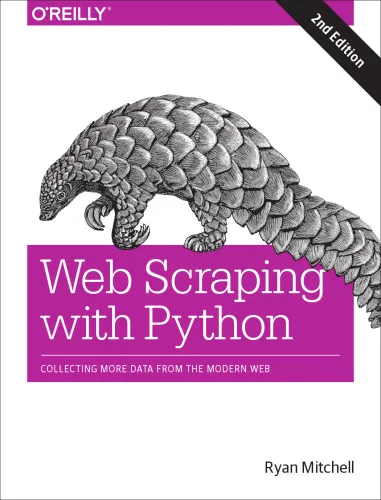Compilers: principles, techniques, & tools = 编译原理: 技术与工具
4.7
بر اساس نظر کاربران

شما میتونید سوالاتتون در باره کتاب رو از هوش مصنوعیش بعد از ورود بپرسید
هر دانلود یا پرسش از هوش مصنوعی 2 امتیاز لازم دارد، برای بدست آوردن امتیاز رایگان، به صفحه ی راهنمای امتیازات سر بزنید و یک سری کار ارزشمند انجام بدینکتاب های مرتبط:
معرفی جامع کتاب "Compilers: Principles, Techniques, & Tools = 编译原理: 技术与工具"
کتاب "Compilers: Principles, Techniques, & Tools"، مشهور به "کتاب اژدها"، یکی از منابع اصلی و اساسی در زمینه تئوری و طراحی compilers است. این کتاب به زبان ساده و با جزئیات کامل به بررسی مفاهیم بنیادی و تکنیکهای پیچیده مورد استفاده در ساخت compilers میپردازد.
خلاصهای جامع از کتاب
در این کتاب، نویسندگان به بررسی جامع مراحل مختلف طراحی و پیادهسازی compilers پرداختهاند. محتوای کتاب از مفاهیم پایهای مانند lexing و parsing شروع میشود و تا مباحث پیشرفتهای چون optimization و code generation پیش میرود. در این مسیر، تکنیکهای عملی و نظری متفاوتی مورد بحث قرار میگیرد که به خواننده کمک میکند تا درک عمیقی از چگونگی ساخت compilers پیدا کند. فصلهای اولیه به نحوه تحلیل لغوی و نحوه تجزیه و تحلیل syntax اختصاص دارند که با ابزارهایی مانند regular expressions و context-free grammars تشریح شدهاند. سپس به مباحثی مانند semantic analysis و intermediate code میپردازد که پایههای محکمتری برای optimization و code generation فراهم میکنند.
نکات کلیدی و ارزشمند
- فهم عمیق از مراحل مختلف compiler design و چرخه زندگی یک برنامه کامپیوتری.
- آشنایی با ابزارها و تکنیکهای پیشرفته در تحلیل و بهینهسازی کدها.
- توسعه توانایی برای نوشتن compilers کارآمد و بهرهور برای زبانهای برنامهنویسی مختلف.
- بینش در مورد ساختار داخلی زبانهای برنامهنویسی و تعامل آنها با ماشین.
نقلقولهای معروف از کتاب
"یک compiler تنها یک نرمافزار پیچیده نیست، بلکه تجلی متقابل میان زبان و ماشین است."
"در دنیای نرمافزار، compilers همانند پلی هستند که ایدههای انتزاعی را به کدهای اجرایی تبدیل میکنند."
چرا این کتاب مهم است؟
این کتاب همچنان به عنوان یکی از اصلیترین منابع آموزشی در دانشگاهها و مراکز آموزشی معتبر در زمینه علوم کامپیوتر شناخته میشود. دلیل این اهمیت، جامعیت و دقت نظری این کتاب در پوشش موضوعات پیچیده و فنی مرتبط با طراحی compilers است. علاوهبراین، سبک نوشتاری و توضیحات دقیق نویسندگان، این کتاب را به یک مرجع بیبدیل برای متخصصان و دانشجویان علاقمند به برنامهنویسی سیستمی تبدیل کرده است. بهعلاوه، نویسندگان این کتاب افراد برجستهای در دنیای علوم کامپیوتر و نظریههای زبانهای برنامهنویسی هستند که اعتبار علمی کار آنها نقشی کلیدی در شهرت و مقبولیت این کتاب داشته است.
Compilers: Principles, Techniques, & Tools, often dubbed the "Dragon Book" due to its distinctive cover art, is a seminal text in computer science that lays the foundational framework for understanding the principles and construction of compilers. The book is renowned for its comprehensive approach to the theory and practical applications of compiler design. This introduction offers an insightful dive into its content, significance, and impact in the field of computer science.
Detailed Summary of the Book
The "Dragon Book" extensively covers the entire process of compiler construction, presenting a detailed division of the complexities involved. It begins with lexical analysis, which involves tokenizing the source code into meaningful symbols. This is followed by syntax analysis, which checks the source code against grammatical rules to ensure structural correctness. The book progresses into semantic analysis, where it examines the meaning of the syntactically correct phrases in the context of the language.
After establishing a foundation in these preliminary stages, the book delves into intermediate code generation, optimization strategies, and finally, the generation of target code. Each phase is explored with in-depth theoretical discourse backed by practical techniques and algorithms. The "Dragon Book" is renowned for its rigorous mathematical treatment of algorithms involved in compiler design, supporting readers with precise proofs and derivations.
The book also incorporates discussions on code optimization techniques, which are vital for improving the efficiency and performance of the resulting code. It elaborates on both local and global optimization processes and delves into areas like loop optimization, data-flow analysis, and register allocation. Furthermore, the text explores advanced topics such as type checking, run-time environments, and garbage collection, offering a holistic understanding of modern compiler design.
Key Takeaways
- A comprehensive guide to the theoretical foundations of compilers including lexical, syntax, and semantic analysis.
- Practical techniques for each phase of the compiler construction process, enhanced by algorithms and real-world applications.
- Extensive coverage of optimization methods essential for efficient code generation.
- Insights into advanced topics such as runtime environments and type systems, which are crucial for understanding modern programming languages.
Famous Quotes from the Book
"Compiler construction is an engineering discipline, but it draws upon elements from many domains such as formal language theory, algorithms, and software engineering."
"A well-designed compiler translates not only the source code but also the programmer's intentions into effective machine instructions."
Why This Book Matters
The significance of "Compilers: Principles, Techniques, & Tools" extends beyond its thorough coverage of compiler construction. It has been instrumental in shaping the understanding of several generations of computer scientists about how high-level programming languages are translated into machine code. The methodologies and practices discussed in the book are applicable not only to the field of compilers but also to other areas of software development and engineering that involve complex systems. The "Dragon Book" is respected for providing a deep dive into the structural mechanics of programming languages, offering a fundamental base for research and innovations in the ever-evolving domain of computing.
Beyond its technical merit, the book is lauded for its clear explanations accompanied by illustrative examples, which make complex theories accessible to students, educators, and practitioners alike. It stands as a critical resource in academia and industry, upholding a legacy of excellence in the education of computer programming and systems design. As programming languages continue to evolve, the principles elucidated in this book remain steadfast, highlighting its timelessness and relevance in the continuously advancing field of technology.
دانلود رایگان مستقیم
شما میتونید سوالاتتون در باره کتاب رو از هوش مصنوعیش بعد از ورود بپرسید
دسترسی به کتابها از طریق پلتفرمهای قانونی و کتابخانههای عمومی نه تنها از حقوق نویسندگان و ناشران حمایت میکند، بلکه به پایداری فرهنگ کتابخوانی نیز کمک میرساند. پیش از دانلود، لحظهای به بررسی این گزینهها فکر کنید.
این کتاب رو در پلتفرم های دیگه ببینید
WorldCat به شما کمک میکنه تا کتاب ها رو در کتابخانه های سراسر دنیا پیدا کنید
امتیازها، نظرات تخصصی و صحبت ها درباره کتاب را در Goodreads ببینید
کتابهای کمیاب یا دست دوم را در AbeBooks پیدا کنید و بخرید


